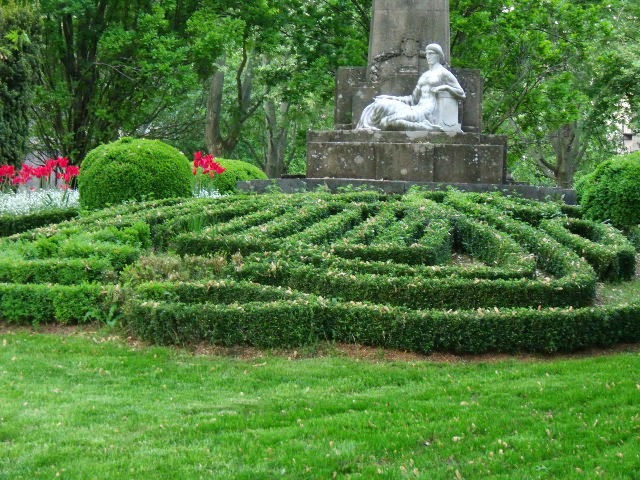 The busyness of the Camino. When I first started this journey on the Camino I had expected to write a lot more often. But my efforts seemed to be thwarted by a self-driven sense of, “I need to get there.” Every day I stopped to calculate miles/kilometers traveled versus estimated miles/kilometers to get to Santiago. And as I focused more and more on the numbers and taking pictures along the way to remember places, I notice this idea that I’ve been driven by some sort of fear of not being able to complete the Camino at all or just as bad not beating the June 1st deadline. My experience of the Camino has been locked up in a trap, a mental trap that I set myself.
The busyness of the Camino. When I first started this journey on the Camino I had expected to write a lot more often. But my efforts seemed to be thwarted by a self-driven sense of, “I need to get there.” Every day I stopped to calculate miles/kilometers traveled versus estimated miles/kilometers to get to Santiago. And as I focused more and more on the numbers and taking pictures along the way to remember places, I notice this idea that I’ve been driven by some sort of fear of not being able to complete the Camino at all or just as bad not beating the June 1st deadline. My experience of the Camino has been locked up in a trap, a mental trap that I set myself.
And as a result I focused more on riding longer distances taking on the harder days and sitting in the saddle. Stopping frequently to get those pictures to show everyone. And what I was missing was the disappointing part. By worrying about getting there I was avoiding meeting new people and getting to know them. If you walk the Camino you have the intermittent opportunities to dialog with folks as you move along. You may change your cadence to keep up or slow down.
But on a bicycle you’re pretty isolated. Traveling at faster speeds and at times on different paths you have to maintain awareness of the terrain as it quickly changes second to second. Walkers don’t need to focus that way. Plus cyclist don’t usually have the room to ride two abreast of each other and so it’s not as common to build those relationship while traveling.
It hasn’t been until recently that I’ve realized these issues. By staying in the saddle longer, stopping only to eat and sleep and based on the dynamics of cycling I haven’t been participating in the best part of the Camino: meeting people from all over.
Early on I had brief encounters with a few people when I was too tired to go on. But it’s only been in the most recent few days that I’ve ended my days earlier and managed to put myself in social areas along restaurants, bars, and common rooms where people stop for early dinner/late lunch, a beer, or a coke.
I had dinner with a retired banker from Minnesota, catholic seminarians from New York, a stamp investor from South Africa, fund raising consultant from Hawaii’, an oil rig chef from Japan, married couple from Australia, two bosom buddies from Canada, and a Lutheran minister from Denmark. ‘
I’ve met others, but these are the ones I’ve sat with and had lunch/dinner/snacks with. These are the ones who I’ve had introspective conversations about life, culture, our shared experiences on the Camino. Some offer wisdom that helps me understand better my role as a priest and pastor.

I can say without a doubt that a conversation I had on Sunday has literally helped me clarify my role as a church leader and what I should be doing and saying to the people in my spiritual cure.
As I am getting closer to the end of the Camino, to Santiago I don’t feel the rush. I can see the end is in reach. And I’ll do my best to take these last few days to spend time where it matters and that is with the people that God has brought here at this time in place to take this same journey with me.
In preparing my congregation for my time on the Camino de Santiago I often referred to the pilgrimage as a metaphor for life. I hope that we can take this life lesson I’ve learned along the Way and use our time on the journey to meet new people. Hopefully we;’ll talk with them allow them to learn from us and us from them.








